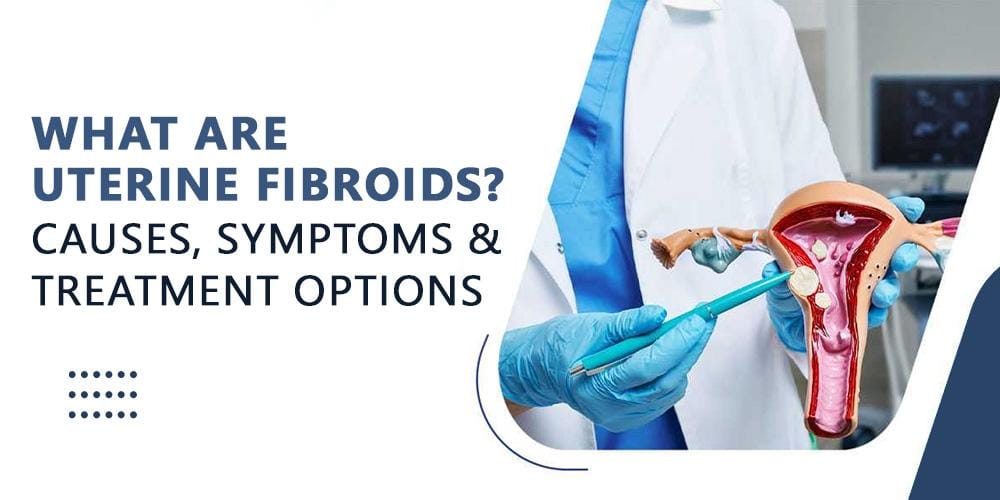Laparoscopy hysterectomy is a modern form of surgery to remove the uterus of a woman who has been infected or is a cause of much larger problems in the body. This procedure is conducted by highly skilled doctors using a very thin tube with a camera attached. An incision is made Through the laparoscope, and the tube-like structure is inserted. The most common reasons that leads to hysterectomy include-
- Uterine disorders
- Abnormal menstrual bleeding
- Fibroids
- Uterine Cancer
Since the surgery is not very invasive, the post-operative pain is not much. The recovery period depends on the individual’s overall health condition and the reason for the surgery. Still, women usually return to their normal lifestyle within three weeks of the surgery.
If you are looking for a experienced Laparocopic surgeon in Jaipur to advise you on hysterectomy, consult Dr. Pankhuri Gautam. She is an expert pelvic surgeon who also specialises in laparoscopic treatments. She has over ten years of experience and has successfully handled many surgeries.
About Laparoscopic Hysterectomy and Recovery Period
As you start the recovery journey, it’s essential to indulge in self-care. These are some of the tips that can help your recovery period.
- Eat less than you usually do. Since you are not as mobile as you used to be, it won’t be easy to burn those calories you can generally burn.
- Get up and walk a little; do not stress your body with too much physical exercise. Walking around the room will not harm you; it will help your regular bowel movement.
- If you are experiencing any discomfort under your ribs or shoulder, then don’t worry. This is usually because of the trapped wind during the procedure. Sit up and try deep breathing to allow that trapped wind to disappear.
- Do not touch your wounds with bare hands. The dressings are usually waterproof; remove them only if they have started coming off independently.
- Ensure you do not lift anything heavy; it can cause severe damage and delay your recovery.
- If, during the procedure, doctors removed your cervix, it is advisable not to indulge in sexual intercourse for at least six weeks.
- Avoid driving cars for at least two weeks as your body is too weak to handle pressure.
6 Week Post-Operative Laparoscopic Hysterectomy Tips
As you start your journey to recovery, follow these 6-week post-operative guides. This will help you in understanding the healing process and tips that will come in handy-
WEEK 1-
Since you will be so weak, don’t overthink if you sleep off at odd hours in the afternoon. It is entirely normal. If you are experiencing any discomfort under your ribs or shoulder, then don’t worry. This is usually because of the trapped wind during the procedure. Sit up and try deep breathing to allow that trapped wind to disappear.
Do not eat as much as you usually do. Since you are not as mobile as you used to be, it will be difficult to burn those calories you can normally burn. Make sure your fluid intake is on point- doctors, including tea, coffee and soups, recommend at least 2 ½ litres.
Do not touch your wounds with bare hands. The dressings are usually waterproof, remove them only if they have started to come off on their own.
You can start pelvic exercises and are expected to feel a little pain while doing those exercises. But do not stress so much about it; only one or two times is enough for at least one week.
WEEK 2-
Stitches are removed after one week so that you can go for short walks around the neighbourhood.
Avoid driving cars for at least two weeks as your body is too weak to handle pressure. Do not drive as your body is still recovering, and putting any strain on your lower body will not be helpful.
Avoid picking up anything which is heavy.
WEEK 3-4
You can start driving by the time you are in the third week of your recovery. Try it first, in case you feel uneasy or discomfort, back off immediately. Your body may not be as ready as you thought it would be.
You can start your regular cleaning but still do not carry anything heavy. Do not stand for long hours, as your pelvic area is still weak and needs time to recover.
WEEK 4-6
Do not indulge yourself in any heavy manual work. Lifting anything heavy is strictly prohibited.
You can start with your long walks now!
If, during the procedure, doctors remove your cervix, it is advisable not to indulge in sexual intercourse for at least six weeks, and those whose cervix is intact and feel comfortable can indulge in sexual intercourse.
By 6th week, you can start with physiotherapy. The physio can also check if you use the correct muscles for your pelvic exercises.
Tips to follow Post Laparoscopic Hysterectomy
- Diet Changes-
Include food that is rich in fibre. A proper intake of juicy fluids will help you keep your bowel movements regular. A balanced and nutritious diet will help positively heal your body without leaving any deficiencies or weakness.
- Bowel Function-
Doctors often provide stool softener medicines to ensure comfortable bowel movements. It is advised to have a routine and confirm you do not delay when you have an urge to have a bowel movement.
- Incision Care-
It is advisable not to bathe for at least two weeks. The dressing is waterproof, and these dressings usually come off on their own with time it is essential to keep your incisions clean and dry. Doctors usually give specific instructions for bathing, follow them, and look at the signs of infection. If you experience redness or swelling or any sign of discharge from the incision, contact your doctor immediately.
- Avoid Sexual Activities-
Doctors strongly advise not to indulge in any sexual activity for a minimum of 8 weeks post-surgery. Simply because- your body is weak and healing, since the procedure sometimes includes removal of the cervix, your body is more prone to infection initially, so sexual activity can prove to be harmful to your health.
- Limited Physical Movements-
Doctors suggest staying in bed for a week, then walking near the bed in the second week, and in the third week, you can walk around the room. Through this process, you can maintain your health and stay mobile. Avoid bending down and sitting on the floor for at least 5-6 weeks. Do not lift anything heavy, as this can strain the incision and internal stitches.
What To Avoid After The Procedure?
After the procedure, maintaining a healthy lifestyle is non-negotiable. Going out and eating is still acceptable after some time, but there are some things that women need to avoid after the procedure.
- Smoking and alcohol consumption
Smoking can increase the risk of complications and affect the delivery of oxygen to different tissues in the body. Alcohol should never be mixed with medicines; it can negatively impact your body. Consuming alcohol can increase the risk of bleeding and slow down the process of healing.
- Neglecting wound care
Regular cleaning is necessary to keep your wound clear from infections. Follow the instructions given by the doctor and keep the incisions dry; only make them wet once your doctor says so.
- Ignoring signs of infection
If you face any discomfort or see anything unusual around your incision, like-
- Swelling
- Redness
- Tenderness near wound
- Pus
- Unexplained fever
Please do not ignore these signs, as it could lead to severe infection.
- Ignoring medication indication
Complete the entire course of medications, including painkillers, antibiotics and other drugs. These medicines are essential for your comfort and easy movement, whereas antibiotics will help develop antibodies to fight the infection.
Long-Term Lifestyle Adjustments
After the hysterectomy, maintaining a particular lifestyle and promoting overall well-being are crucial. If, during the procedure, your ovaries are removed, then you may face hormonal changes which need to be taken care of. Usually, doctors discuss the effects and signs of this imbalance, which include hot flashes and mood swings. You can consider HRT after discussing it with your doctor.
We must insist more on follow-ups and regular check-ups. These check-ups ensure the safety of your overall health and assess any changes in your hormonal status.
Conclusion
Post-operative care is not a joke. As recovery depends on body to body, it is even more critical to ensure you take advantage of your follow-up appointments with your doctor and maintain a healthy lifestyle. Following tips like not lifting anything heavy and eating a balanced meal while limiting alcohol consumption and quitting alcohol consumption is crucial.
Dr. Pankhuri Gautam is an experienced gynecologist in Jaipur who deals with infertility, High-risk pregnancy, and hysteroscopic procedures. Consult with her today.






